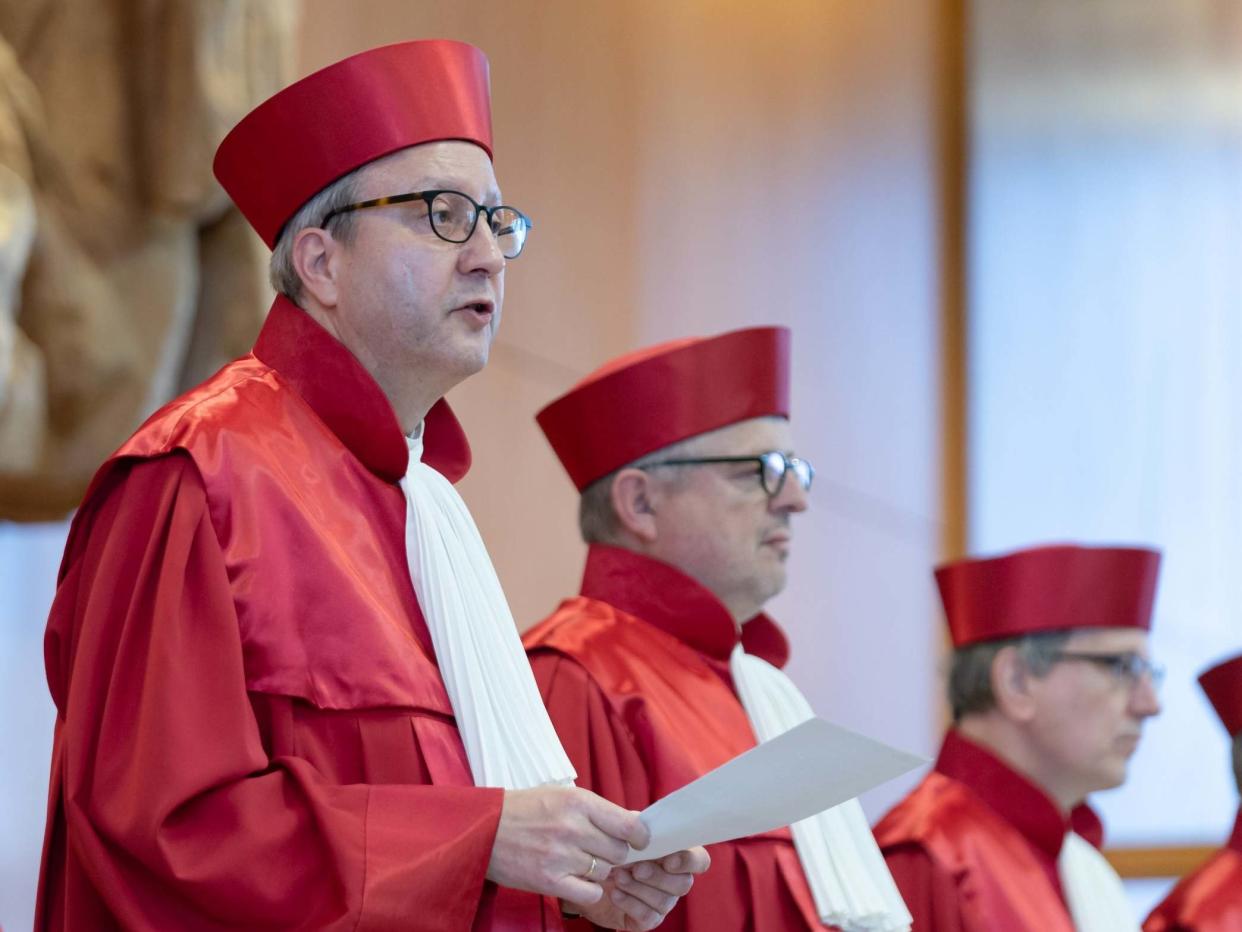German court rules ban on assisted suicide is unconstitutional in landmark decision

A German law banning assisted suicide services has been scrapped in a landmark decision for groups who believe people should be able to die when they choose.
The country’s top court has ruled that a law which outlawed assisted suicide by organisations or doctors who accepted a fee for their work was unconstitutional and should be overturned.
The 2015 legislation had allowed assisted suicide for “altruistic motives” but banned people from offering it to someone else “on business terms”, forcing some suicide advice centres to stop working due to the threat of up to three years in jail for breaking the law.
Patients and doctors had criticised the law for forcing terminally ill people to travel abroad, to countries such as Switzerland or the Netherlands, for euthanasia.
Assisted suicide is a contentious issue in Germany, partly due to its associations with Nazi Germany – when euthanasia was used to kill more than 200,000 people with physical and mental disabilities.
Andreas Vosskuhle, the head of Germany’s constitutional court, struck down the 2015 law because he said it denied a patient’s right to a self-determined death.
Ms Vosskuhle said on Wednesday that German citizens have “the freedom to commit suicide” and this right had been “largely depleted in practice” by the legislation, the German newspaper Der Spiegel reported.
The ban on assisted suicide services had been designed to stop groups or individuals creating businesses to help people die in return for money.
Active assistance – physically taking a patient's life for them – is banned in Germany, but passive help, such as providing deadly medication for them to take themselves has been a legal grey area.
The 2015 legislation was a middle-of-the-road proposal that received cross party support, with proposals discussed at that time ranging from fully permitting assisted suicide so long as it was not for profit to a near-complete ban.
It will now be up to the government whether to re-open the debate to work on a measure in line with the court's ruling.
Only a few countries in the world have legalised euthanasia whereby a doctor administers lethal doses of drugs to patients willing to die, or people perform the action themselves.
Additional reporting by AP/Reuters

 Yahoo News
Yahoo News 
